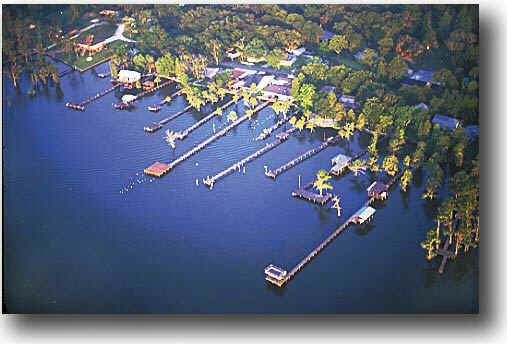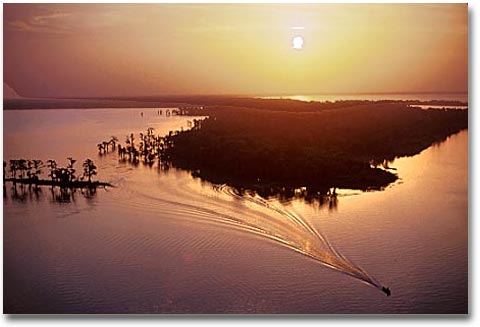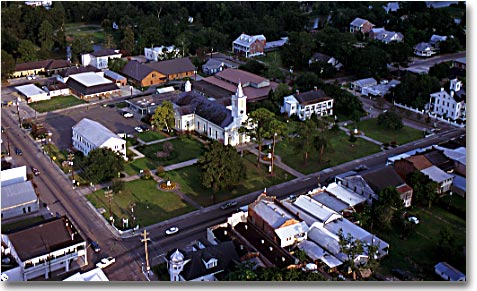|

Shell
Beach, LA
Cajuns love water, fishing and camps. On Lake Verret at Shell Beach, many fishing camps
extend their piers well out into the lake. From here
they fish, hunt and run their nets.
This summer, due to low water, crabbing was great in the
lake. Vernon and I ate a big batch of crabs with Elwood
Metrejeane after a flight over Pierre Parte Bay and Lake
Verret.

A flock of
American Coots ready to take-off from Spanish Lake.
They have short, stubby wings, therefore they have to make a
running start to take-off. This is accomplished by
their webbed feet which act as paddles. The Cajuns
call this bird the Poule D'eau (meaning chicken of the
water) and cook it in their gumbo. The American Coot's
scientific name is Fulica americana. This bird
is usually the size of a chicken. The American Coot
lives in marshes, ponds, or river bends with two feet or
more of open water. Coots primarily will dive to
bottom of the water source to feed. You can also catch
them feeding on the surface of the water or even on land
surfaces, usually during the cold season. Spanish Lake
is used by many more species of wildlife such as Ibis,
Egrets, Eagles, Alligators and Nutria. Spanish Lake is
near Baton Rouge and has much to offer in outdoor
recreation.

Sunrise over Flat Lake
The Atchafalaya
Basin is the Cajun's sportman paradise. This overflow
river basin swamp stretches from Simmesport to the Gulf of
Mexico. It's approximately 18 miles wide and 120 miles
long.
The above photo
is at one of my favorite places, Flat Lake. Flat Lake
is a great place to catch Bass and an even better place to
watch a sunset from a boat. Also, a bird's-eye view of
sunrises over Flat Lake are quite beautiful.

St. Martinville, LA
St. Martinville,
LA, a cajun town on Bayou Teche and home of the Evangeline
Oak, made famous by Henry Wadsworth Longfellow's poem.
You can barely see the oak in front of the Old Castillo
Hotel. The hotel is the two-story brick building
located at the top, center of the photo. Behind the
hotel is Bayou Teche.
In the center of
the photo is St. Martin de Tours Catholic Church and to its
right is the Presbytery (the Priest's house). To the
left of the church is Petit Paris Museum.
|